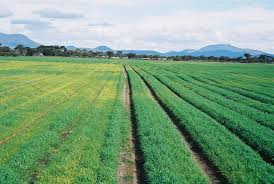It is crucial to retain the growth of crops for the whole season in order to acquire yields during harvest. To reduce the gap, various aspects that include the climate, the quality of the soil and the right measures of crop management are very influential. In this article, some of the best approaches that may be employed in enhancing the growth of crops throughout the season shall be reviewed by Benedict T Palen Jr. With this, you will be able to use the yields to the optimum and have a good farming season.
Proper Soil
Preparation
Most plants grow in
soil and so in preparation for the planting season, the right type of soil must
be prepared for the growth of healthy crops. The first recommendations are
given by the analysis of the pH and nutrient content of the soil. Thus by
checking the results, the soil can be adjusted appropriately for the purpose of
supplying the required nutrients.
The other important
practices include soil aeration and drainage, which, when proper, will block
the chance of disease outbreaks. Do not cultivate the soil too close because
cultivating the soil will negatively affect the roots and, consequently, the
growth of the crops. Proper ventilation reduces the incidence of water-logged
soil, which is a breeding ground for diseases such as root rot and other soil
diseases.
Irrigation and Water
Management
The main ingredient
used in the process of growing crops is water. Practical water application
provides crops with the optimum volume of water needed to meet their needs
without saturating the soil, hence allowing for nutrient runoff and disease
formation.
Benedict T Palen Jr. suggests checking the amounts of soil moisture frequently and
changing the irrigation cycle accordingly. Under head sprinklers and drip
irrigation systems are effective methods of giving water to the crops since
they reach the root system and reduce evaporation and over-watering. Also,
there must be early morning water so that the water might dry up the leaves
before night; this minimizes the attack of fungal diseases.
Pest and Disease
Management
On the influence of
pests and diseases on crop germination and yield; The effects of pests and
diseases on crops. Both of these problems should be prevented from getting
worse; hence, early detection and intervention are vital.
Use practices such
as a change in planting pattern, planting of crops in different cycles and the
use of pests as natural enemies. Check your crops often for pests or disease
issues and treat them as soon as possible. If the crops are invaded by disease or
insects, early application of organic or chemical pesticides will assist in
maintaining the crops healthy and full of energy.
Conclusion

.jfif)

